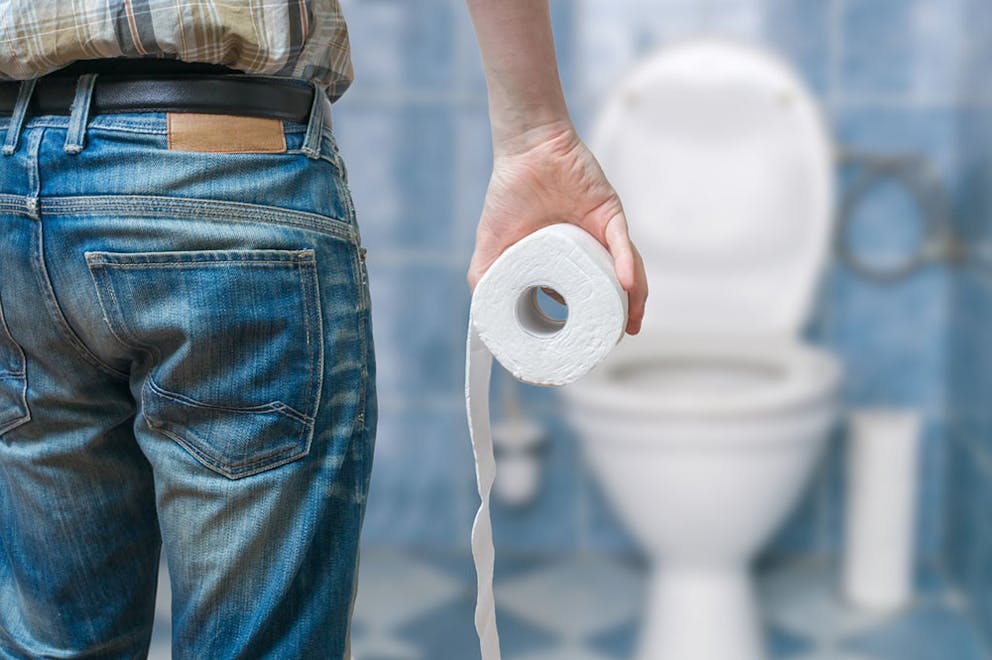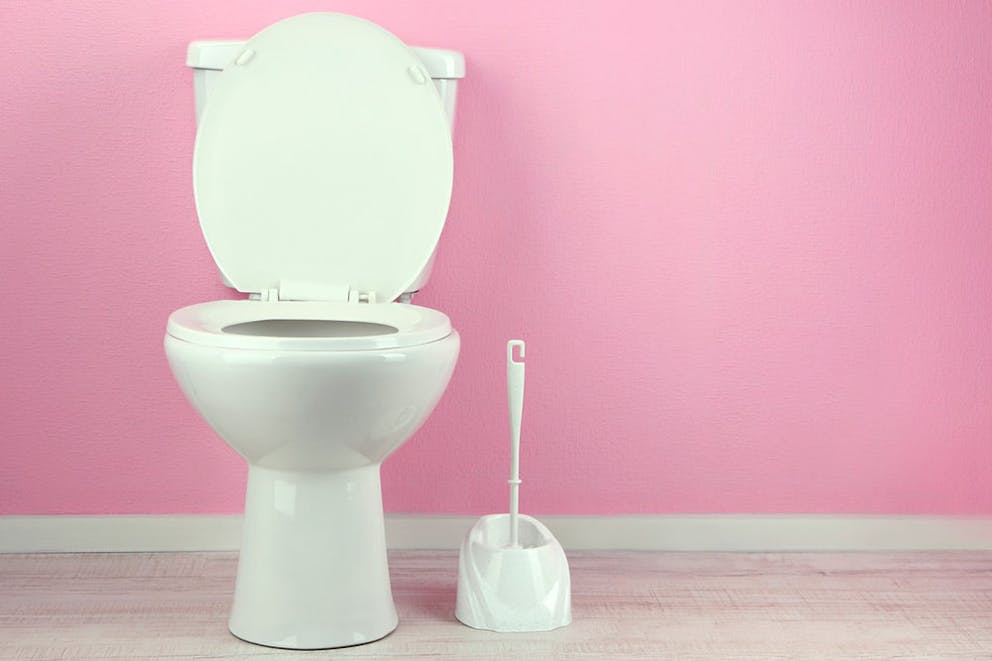Laxatives Are they Dangerous Long Term
Do you ever have a hard time going to the bathroom? Constipation is uncomfortable and can be quite miserable. So if you are having infrequent bowel movements and need to some help, you'll likely be tempted to turn to laxatives. But are laxatives dangerous in the long term? Or are they safe to use?
In this article, I will cover:

Drawbacks of laxatives for constipation
There are some common issues that can come about when you take laxatives to help out with your bowel movements. The major problems include:
Addiction/dependency. If you constantly rely on laxative use to help yourself go, then there is a chance that you can become dependent on them. This can lead to laxative dependency and an addiction of sorts. And that is something you want to avoid.
Diarrhea. If you get diarrhea as a side effect when you take laxatives, then that can be an issue. This can cause dehydration, and it can potentially deplete your electrolytes and lead to an electrolyte imbalance. If that is the case, then you will want to be careful and add back in what you are losing to correct the issue.
As you can see, there are some possible problems with taking laxatives. It is helpful to note that natural, herbal remedies can have fewer side effects than more powerful laxative medications.
But here is what is important to realize: the minor, slight problems of using a laxative are far outweighed by the problems of being constipated.
Using natural laxatives is better than staying constipated
Being constipated and unable to make bowel movements is really problematic and bad for your body. When you are unable to move your bowels, the toxins in your stool are just being reabsorbed into your intestines.
Staying in that toxic state is much worse than any of the drawbacks of laxative use.

That is why I recommend using an herbal remedy when you are constipated. Not as a cure-all, but as a coping mechanism while you figure out what is going wrong.
You don't want to stay constipated, even in the short term. So if you need a natural, herbal laxative to help you get through on a temporary basis, I say go for it.
I recommend Cascara sagrada as a good herbal option, although there are many others that will also do the trick. Cascara sagrada is a stimulant laxative that helps promote the movement of stool through the bowels.
Use these over-the-counter natural laxatives as you figure out what is causing the problem in the first place. Do this so that you can prevent the toxic effects of constipation. Just be sure to watch for any possible side effects, and correct issues like dehydration with extra water and electrolytes.
Addressing the root cause of constipation
It is important to do some investigating to figure out what is causing your digestive issues in the first place. There are two different approaches to take, depending on when your symptoms started.
1. If it happened recently
If you have just recently become constipated, then this is usually a bit easier to figure out. In most cases, the constipation will be correlated with a change in your diet. The solution? Make adjustments to your diet to revert the change that caused the problem.
For example, if you recently started eating a lot more fiber, cut back for on fiber-rich foods for a bit. Take it easy when you ramp up with fiber intake, as high-fiber foods can overwhelm the digestive system at first. If you go too fast and eat too much, you can easily get constipation, bloating, and other problems.
Or maybe you started eating less fiber and added in more protein. To fix the problem, cut back on the protein and add back in the fiber.

2. If you have chronic constipation
Chronic constipation is usually a bit trickier to figure out. But it is still possible to correct it and start feeling better.
There are several things I recommend that can help fix the problem:
Take MCT oil. This healthy oil will loosen up the bowels.
Try bile salts. A lack of bile could be what is causing your constipation in the first place. It might be due to gallstones, the removal of your gallbladder, or other liver problems. If you aren't making bile properly, then it can be an issue. So adding in bile salts can have a laxative effect.
Boost vitamin B1. Being deficient in vitamin B1 can cause constipation. So try taking vitamin B1 to correct that issue.
Increase potassium and magnesium. Being low in these electrolyte minerals can be at the root of the problem. Veggies are high in both, so if you aren't eating vegetables that could be part of the puzzle. Eat more veggies and see what happens.
Adjust your fiber intake. You may need to increase your fiber intake or decrease it. For some people, it is too much fiber that is the problem. This is because you can overload your system with too much fiber, as you don't yet have the microbes to deal with the it. That can lead to bloating, gas, and constipation. If that is the case for you, you'll need to give your digestive system time to adjust by lowering your fiber intake for the time being.
Take probiotics. You may simply just not have the microbes in your intestines that you need to digest things properly. So taking probiotics to boost your gut microbiome might help.
Do intermittent fasting. Fasting allows your system the chance to reset and take a break. This can be especially useful if you have stress within the digestive tract. Adding in more food and fiber just clogs things up even more.

Read more about natural remedies for chronic constipation in this video.
And if you've just started the keto diet and have found yourself having a hard time passing bowel movements, go here for more information on what to do. There I explain what could be causing the problem and easy things you can adjust to correct it.
Conclusion
Constipation is no fun. And it isn't good for your body, either. In fact, the toxic effects of constipation should really be avoided if at all possible.

So if that means taking an herbal laxative on a short-term basis? Then go for it.
I believe that the minor side effects of laxative use are far better than the toxic dangers of being constipated long term. While dehydration, laxative abuse or dependency, and other issues can come into play, they usually aren't severe and can be helped.
So try out an herbal stimulant laxative like Cascara sagrada to use while you figure out what's causing the constipation in the first place.
Some tips to help include:
Make adjustments to your diet if the constipation is a recent problem. Revert any recent changes that preceded your symptoms, as that can help get you back to normal.
Take MCT oil to loosen the bowels.
Try bile salts to see if lack of bile is the problem.
Boost your vitamin B1 intake to ensure you aren't deficient.
Get more potassium and magnesium through eating nutritious vegetables.
Adjust fiber intake. You may need more or less, depending on what is going on for you.
Try probiotics to get your gut flora healthy.
Do intermittent fasting to give your system a break.
Experiment with these lifestyle changes and see what helps. And go here to learn more about constipation and effective remedies.
To recap, I don't recommend laxatives as a cure-all or a long-term approach. And I certainly don't recommend them as a weight loss strategy. But when they are used to avoid constipation while you look at addressing the root cause, I believe they can be a good option.
What are your thoughts? Give these strategies a try, and let me know how they work for you in the comments section below.
Up Next:
Disclaimer: Our educational content is not meant or intended for medical advice or treatment.
Editor’s Note: This post has been updated for quality and relevancy.
Previous blog
Is the A1C Test AccurateNext blog
How to Get Your Spouse to Stop SnoringTags

Popular
08/21/2024
55.7K views
02/23/2025
46.8K views
11/18/2024
281.1K views
03/18/2024
11/21/2022




